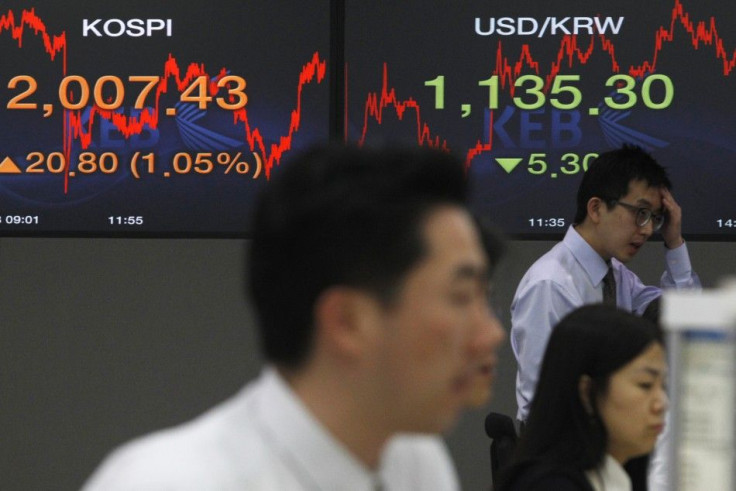South Korea’s GDP Growth Cut To 0.3% In Q2

South Korea's economic growth slowed down to 0.3 percent in the second quarter this year compared to previous three months, weighed down by the faltering global economy and the intensifying debt crisis in the euro zone, revised data released by the Bank of Korea (BoK) Thursday showed.
The preliminary reading in July showed that South Korea's gross domestic product was up 0.4 percent in the second quarter of 2012. In the first quarter, the economy expanded 0.9 percent.
This report comes after last week it was reported by the BoK that South Korean manufacturing BSI Index for September was at 75. A reading below 100 is an indication that the number of firms that see business conditions deteriorating is more than that of those that see an improvement.
According to data released last week by the National Statistical Office, the industrial production in South Korea saw a decline of 1.6 percent in July, down from 0.6 percent decrease in June.
With South Korea's economy continuing to slow down, investors feel that the BoK will be under pressure to announce monetary easing measures at the next meeting in September. The BoK's announcement last month to keep its interest rates unchanged came as a surprise to investors who were expecting monetary easing measures to rejuvenate the country's economic growth.
Given that both local and global conditions have been weak over the past month and because South Korea's headline consumer price inflation fell below the central bank's 2-4 percent target range in July, market players were expecting a cut in the interest rate. But the Bok has decided to hold its policy rate at 3 percent.
Market participants still feel that chances are high that they will cut rates at the next meeting in September. The worse-than-expected deterioration in the economic conditions definitely puts pressure on the BoK to add stimulus.
In July, South Korea's central bank cut the interest rate for the first time in over three years in a move to stimulate the faltering economic growth of the country. The BoK had decided to cut the interest rate by 25 basis points to 3 percent.
Investors sense that the euro zone crisis is likely to escalate again this year. They also sense that the global growth will remain subdued not just for the remainder of 2012 but also in 2013, led by a prolonged recession in the euro zone. So there is an increasing possibility that the BoK will have to further cut the interest rate this year.
© Copyright IBTimes 2025. All rights reserved.





















